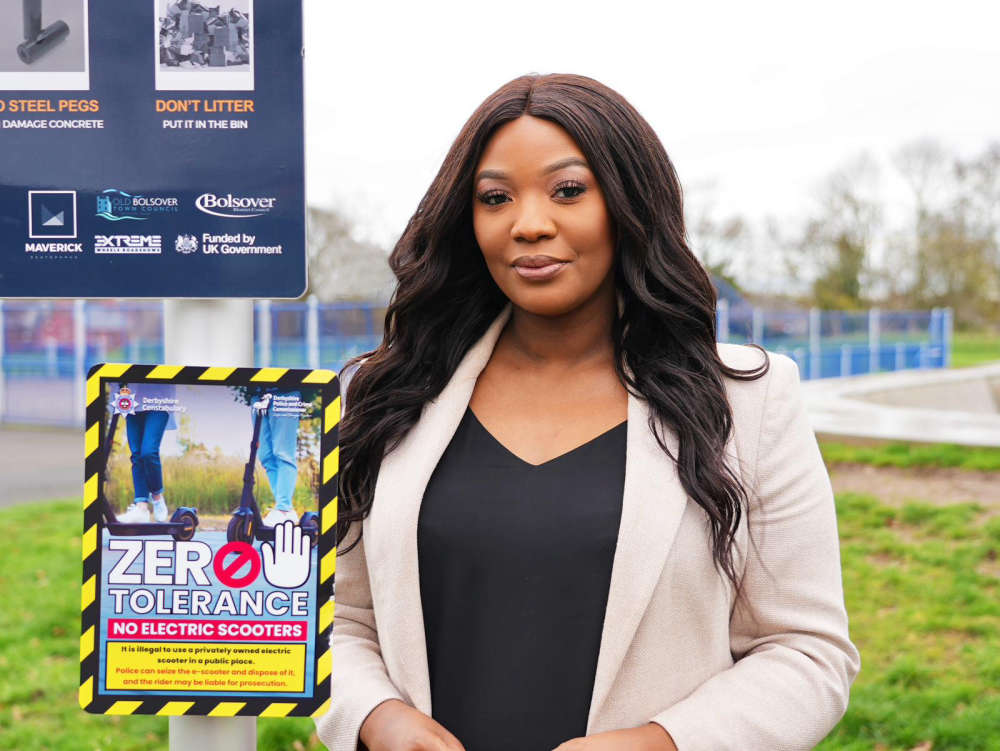Despite biodiversity being vital in providing the air we breathe and the food we eat, more than three out of four people in the East Midlands (76%) admit they know very little about it or how to sustain i, and if thats not concerning enough, demonstrating an alarming knowledge gap, nearly a third of people in the East Midlands (28%) go as far as to say they dont believe biodiversity is actually an important issue.
Published at a time when biodiversity is decreasing at an unprecedented rate globally, these are the worrying findings coming out of a new independent, nationally representative study, conducted on behalf of a firm of biodiversity experts.
Put simply, biodiversity is all the different kinds of life on earth and defines the interaction between organisms.? Sustaining biodiversity is essential for the processes that support all life on earth, including human. Without a wide range of animals, plants and microorganisms we cannot have the healthy ecosystems that provide us with oxygen and food, through pollination, seed dispersal, water purification, climate regulation and pest control.
Ecologist Terry Smithson, said: The findings of our study are significant as they highlight a lack of knowledge of biodiversity in the UK and therefore an inability for people to proactively make simple positive changes. Despite the efforts of governments and environmental champions such as David Attenborough and Greta Thunberg, humans domination of our world is continuing to cause rapid ecosystem change and mass loss in biodiversity, at an alarming rate.
Independent research also reveals that a huge four in five people (80%) say what prevents them from doing their bit to help sustain biodiversity is they dont know how - they dont have the tools and resources they imagine they would need - and they just dont have the time to think about it.
Terry Smithson added: Without sounding like a supermarket slogan, every little helps. It really is within our power to make choices, on an individual level, to help ensure the survival of species and the health and integrity of ecosystems. We need to realise, by taking even small steps to promote biodiversity, we are also helping ourselves. Immersion in wildlife is also proven to boost mental and physical wellbeing.? For example, the current trend for artificial turf lawns may be a low maintenance option for busy people, but they provide a very low-quality habitat for busy bees.?
Data reveals that men are more apathetic towards biodiversity, and less likely to change their habits to support it, than women. Nearly four in ten (37%) say they dont think it is important, compared to just one in four (25%) of women.? Additionally, men cite a lack of free time to devote to supporting biodiversity as the biggest barrier, with one in four (25%) highlighting this issue, compared to fewer than one in five (18%) women.
The new data also shows that Gen Z are significantly less engaged with biodiversity and the importance of protecting it, compared to their parents. Just over half (51%) of 18-24-year-olds think preserving biodiversity is an important issue, compared to nearly four in five (78%) 45-54 year-olds.
Similarly, only 39% of young adults and 51% of 45-54 year-olds admit that although they know biodiversity is important, they dont know much about the issue generally.
Terry Smithson from Bioscapes added: A primary objective is to help offset the negative impact of biodiversity loss and preach the message of boosting biodiversity across the UK. Were working closely with a number of schools, housing developers and garden centres to rewild areas by installing innovative, self-contained eco-systems - which not only provide a tangible benefit to biodiversity in the short-term, but also educate different generations about its importance and how they can do their bit to support it.
These findings highlight a persisting lack of education and awareness of biodiversity in 2022, particularly across the younger generations, disappointingly, as they are in a position to have the biggest positive impact in the longer term.
Five Wild Ways to Bring Better Biodiversity to Your Garden
Bigging up the biodiversity of your outside space doesn't have to be hard or compromise the way your garden looks. These top tips from biodiversity experts, BioScapes can help you make your garden an attractive home not only for you, but importantly also for a much more diverse mix of healthy flora and fauna.Keep it real avoid artificial lawn Artificial lawns have no wildlife benefit. Even a perfectly kept lawn with no weeds has a basic layer of wildlife value, because it's a good home to millions of soil dwelling creatures, most so microscopic we can't see them. Worms, grubs and grass eating caterpillars, slugs and snails all feed birds too. If you can, let your lawn grown long between mowing and watch the wildlife such as voles, shrews and butterfly caterpillar love it.
Tree houses - Trees and shrubs can transform the look and feel of a garden, creating areas of light and shade, filtering winds and provide nesting sites for birds and food and shelter for all manner of creatures. Include at least some evergreen species to provide wildlife with year-round protection from wilder weather conditions. If you dont have space for larger trees in your garden, remember wildlife is no respecter of boundary lines you could view your own plot as part of a patchwork of interlinked gardens and public green space near you, and so you could help make sure other local specimens are cared for.
The water of life - One of the easiest ways to add wildlife value to a garden is to dig a pond. If youve not got the energy - a large pot or even an inverted dustbin lid in an out-of-the-way spot will do, and keep it simple; its actually better not to add fish to a pond primarily there for wildlife (they will eat it all) and allow water plants to colonise naturally. Dont forget to make sure any pond has at least one sloping side to give creatures an easy way out. Most wildlife, including amphibians such as newts and frogs, like shallow water.
A greengrocer in your garden - A biodiverse garden is a healthy and productive garden. Creating a garden full of different types of fruits, vegetables, herbs, flowers, trees and shrubs can nourish body and soul and also encourage a much greater variety of wildlife too. And more wildlife means a healthier garden.

 Space race! Borough Council offers R&D boost for satellite and F1 firm
Space race! Borough Council offers R&D boost for satellite and F1 firm
 New Chief Executive recommended by Derbyshire County Council
New Chief Executive recommended by Derbyshire County Council
 Change to Employment Rights Bill a ‘step forward’ says Chamber
Change to Employment Rights Bill a ‘step forward’ says Chamber
 PCC urges residents to leave e-scooters off the shopping list
PCC urges residents to leave e-scooters off the shopping list




